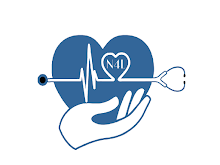Minor discomforts During Pregnancy
During pregnancy, a women's body changes in many ways. These changes can sometimes be uncomfortable but most of the time they are normal. Most women will experience some discomforts during first, second, and third trimester during pregnancy. Symptoms of discomfort during pregnancy vary from woman to another. The main cause of those discomforts are hormonal changes during pregnancy.
Minor discomforts during first trimester:
Pregnant woman in her 1st trimester may experience symptoms such as:
Morning sickness (nausea and vomiting) – frequent urination – breast tenderness – fatigue – headache – dizziness – vaginal discharge (leuKorrhea).
Morning sickness (nausea and vomiting):
They are common discomfort of the first trimester, causes are unknown, and research suggests that the unusual increasing in the level of estrogen and progesterone, deficiency of vitamin b6 may be a contributing factor. Nausea affects about 80% of women during pregnancy, and about 50% experience both nausea and vomiting. Severe vomiting is called hyperemesis gravidarum.
How to deal with Nausea and vomiting?
Get out of bed slowly
Avoid sudden movement
Always look for changing the air of the room and others.
Eat small, frequent meals.
Eating dry crackers, cheeses, lemonade, and increasing food containing vitamin b6 such as meat, banana, and fish.
Frequent urination:
Increased voiding frequently because of hormonal changes during 1st trimester
Management:
Report any burning sensation to your doctor.
Do some exercises to strengthen the perineal muscles (Kegel exercise)
Breast tenderness and enlargement:
Causes are increased amount of estrogen and progesterone influences glandular tissue and lobular alveolar growth of the breast, this make it become tender and enlarged.
How to manage? :
▪ wear supportive maternity bra with pads at night
▪ wash with warm water, keep dry and avoid soap on nipples
▪ Change sleeps position
▪ Caffeine should be avoided
Fatigue:
Although experience with fatigue tends to vary, most women will feel more tired than usual during their pregnancy. Fatigue during pregnancy is most common during the first trimester. It tends to go away during the second trimester, but will usually return in the third trimester. Some cases, fatigue is due to anemia (low blood iron)
How to cope with it?
▪ Rest when you feel tired
▪ Eat a Balanced Diet, get enough iron, protein, and calories
▪ Adjust Schedule, you may have to temporarily adjust your schedule to be less busy.
Dizziness:
May be caused by:
Quickly moving from a sitting position to a standing position
Low blood pressure due to the uterus compressing major arteries
Low blood sugar
Low iron (anemia)
Dehydration
How to deal with dizziness?
Avoid standing for long periods. If you must stand, make sure that you keep your feet moving to help increase circulation.
Stand up slowly and hold on to the walls and other stable structures for support and balance.
Get up slowly from either sitting or lying down.
Eat regularly. Avoid long periods between meals; it is better to snack throughout the day.
Avoid hot baths or showers.
Avoid lying on back once you reach the middle of your second trimester.
Wear loose, comfortable clothing to avoid restricting circulation.
Headache:
Headaches during pregnancy can be a result of hormonal changes, tension, and congestion, constipation, lack of sleep, dehydration, low blood pressure, low blood sugar, and even caffeine withdrawal.
How to treat headache?
Posture plays an important role. Try to stand up and sit up straight.
Get plenty of rest and practice relaxation exercises
Exercise (daily 30-minute walk)
Eat frequent and well-balanced meals
Avoid foods that set off headaches, such as chocolate, caffeine, dairy, meats with preservatives.
keep hydration by drinking at least 8 cups of water a day (dehydration can be a trigger)
Applying a compress to your head or neck when having a headache
Eating more frequent meals to avoid low blood sugar
Massage your head (or have someone to do it for you)
If you are sensitive to light and/or sound, try blocking these out or minimizing (sunglasses, earphones to block noise)
Take a dose of acetaminophen (if your doctor approves)
Increased vaginal discharge(leukorrhea)
Leukorrhea is a leak of thin or thick whitish viscous vaginal secretions (physiological change)
Causes: increase mucus production by vaginal glands and vaginal mucosal hyperplasia, usually there is no odor irritation, itching or discomfort unless hygiene is poor
How to deal with vaginal discharge?
Cleanliness by daily bathing
Wear perinatal pads
Perform hygienic practice such as wiping front to back
Avoid nylon underpants that retain heat and moisture in the genital area
Apply and use absorbent cotton underpants
Report to health care providers if accompanied by pruritus, foul odor.
References:
https://www.linkedin.com/in/mohamedshaaban55







0 comments:
Post a Comment